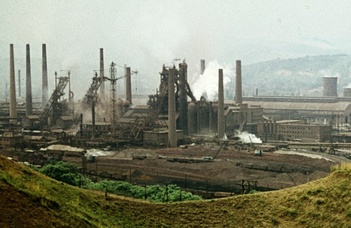Koloh Gábor a MOSEC online műhelykonferenciáján ad ma elő

2022. május 05. 09:00 - 2022. május 06. 18:00
Ostravská Univerzita (online)
2022. május 05. 09:00 - 2022. május 06. 18:00
Ostravská Univerzita (online)
Koloh Gábor a MOSEC ostravai online workshopján ad ma elő. Előadásának címe: State measures, ecological changes and peasant farming in South Transdanubia (Hungary) in the 18th—19th centuries”
A műhelykonferencia előadásainak absztraktjai és regisztrációs linkje itt érhető el: link
A workshop programja:
(All times in Central European Time, CET)
5 May, THURSDAY
9.00—10.30 Welcome and Keynote Session
9.00—9.15 Welcome to sessions
Professor Aleš Zářický, Vice-Rector for Studies and Lifelong Learning & Director of the Centre for Economic and Social History
Michaela Závodná, Vice-Dean for Development & Deputy Director of the Centre for Economic and Social History welcome us all to Ostrava.
9.15—10.30 Opening Keynote
“Tensions of Environmental State Making” Dr Richard Hölzl, Lecturer in Modern History at the University of Göttingen, Germany
10.30—10.45 BREAK
10.45—12.15 Session 1. Histories of Modernization and Industrialisation in East-Central Europe
● Bruno Raguž, University of Applied Sciences Baltazar, Croatia
The beginnings of industrialization in Sisak and impact on the environment—example: Sisak Refinery
● Ágnes Németh, Eötvös Loránd University, Budapest, Hungary
“The ecological consequences of the sewerage system’s reform in Budapest in the 2nd half of the 19th century”
● Anastasiia Khovturа , V. N. Karazin Kharkiv National University, Ukraine
“The struggle for cleanliness: waste management in Kharkiv at the turn of the 19th – 20th centuries”
● Andrija Filipović, Faculty of Media and Communications in Belgrade, Serbia
“(Post)socialist meontopolitics: Sava river and the necroecological modernization of Belgrade”
12.15—13.00 LUNCH BREAK
13.00—14.30 Session 2. Industrialisation and Urbanization in East Central Europe in the 19th and 20th centuries
● Gábor Koloh, Eötvös Loránd University, Hungary
“State measures, ecological changes and peasant farming in South Transdanubia (Hungary) in the 18th—19th centuries”
● Piotr Boroń and Jakub Grudniewski, University of Silesia, Poland
“The influence of the state policy on the development of industry in Upper Silesia on the example of the zinc smelter in Katowice-Szopienice (Wilhelminehütte) and the ecological consequences of the production of non- ferrous metals in the region”
● Marcin Szymański, Agata Zysiak, University of Lodz, Poland
“Modernization of Lodz industrial plants and the issues of environment and health and safety. Outline of the problem”
● Michaela Závodná, University of Ostrava
“Let them breathe—ecological aspects of urban transport in Ostrava region during 19th and 20th century”
14.30—14.45 BREAK
14.45—15.45 Roundtable Session
“Modernization by the State and its Ecological Consequences in East-Central Europe”
Panelists
Josef Djordjevski, University of Graz, Austria
Jiří Janáč, Czech Academy of Sciences, Prague, Czechia
Sławomir Łotysz, Polish Academy of Sciences, Poland
Péter Szabó, Institute of Botany, Czech Academy of Science, Brmo, Czechia
Michaela Závodná, University of Ostrava, Czechia
Moderator: Viktor Pál, University of Ostrava, Czechia
15.45—16.00 BREAK
16.00 —17.00 Book Presentation Session
Ştefan Dorondel, Stelu Şerban eds. A New Ecological Order. Development and the Transformation of Nature in Eastern Europe (University of Pittsburgh Press, 2022).
Panelists
Abran Agota, New Europe College, Romania
Eunice Blavascunas, Whitman College, USA
Ştefan Dorondel, Romanian Academy, Romania
Anna Olenenko, Khortytsia National Academy, Ukraine
Flora Roberts, University of Cardiff, Wales
6 May, FRIDAY
9.00—9.45 COST Actions Planning Session
Conveners:
Michaela Závodná, University of Ostrava, Czechia
Viktor Pál, University of Ostrava, Czechia
9.45—10.00 BREAK
10.00—11.30 Session 3. Industrialisation and Urbanization in Eastern Europe in the 19th
and 20th centuries
● Iaroslav Golubinov, Samara National Research University, Russian Federation
“War debris: the problem of creation and utilization of military waste on the Eastern Front 1914–1918”
● Elena Kochetkova, HSE University, St. Petersburg, Russian Federation
Socialist quest for no-waste economy and wood consumption, 1950s—80s
● Ľudovít Hallon, Slovak Academy of Sciences, Slovakia
“Attempts to overcome the effects of socialist industrialization on nature and the landscape in Slovakia in the period of ‘political normalization’ in the 70s and 80s of the 20th century”
11.30—12.15 BREAK
12.15—13.45 Session 4. Environmental Legacies of Socialism and Post-socialism
● Marta Rendla and Janja Sedlaček, Institute of Contemporary History, Slovenia
Industrialization and Urbanization in the Slovenian part of Socialist Yugoslavia and Their Impact on the Environment
● Ferenc Jankó, Eötvös Loránd University, Hungary
“Political ecology of environmental conflicts in Hungary: from socialism to the present”
● Weronika Parfianowicz, University of Warsaw, Poland
“Central European heralds of ecosocialism”
13.45—14.00 BREAK
14.00—15.30 Session 5. Resource Extraction and the Environment since the 18th century
● Oleksii Kompaniiets, Bohdan Khmelnytsky National University of Cherkasy, Ukraine
“Forest Harvesting as a Factor of Increasing in the Frequency of Floods: the Case of Galicia and Bukovina From the Period of the Austrian and Austro-Hungarian Empire (1772—1918)”
● Róbert Balogh, University of Public Service, Hungary
“The Role of Forest Laws in the Transition to Profit-oriented Agriculture as State Project in the Kingdom of Hungary, 1849—1918”
● Viktor Pál, University of Ostrava
“Nationalist Modernization and Ecological Crisis in the Habsburg Empire during the Nineteenth Century”
● Steven Jobbitt, Lakehead University, Canada
“Interwar Assessments of Hungary’s Modernization Project: Hydrological Science and the Question of Water Management, 1920—1938”

